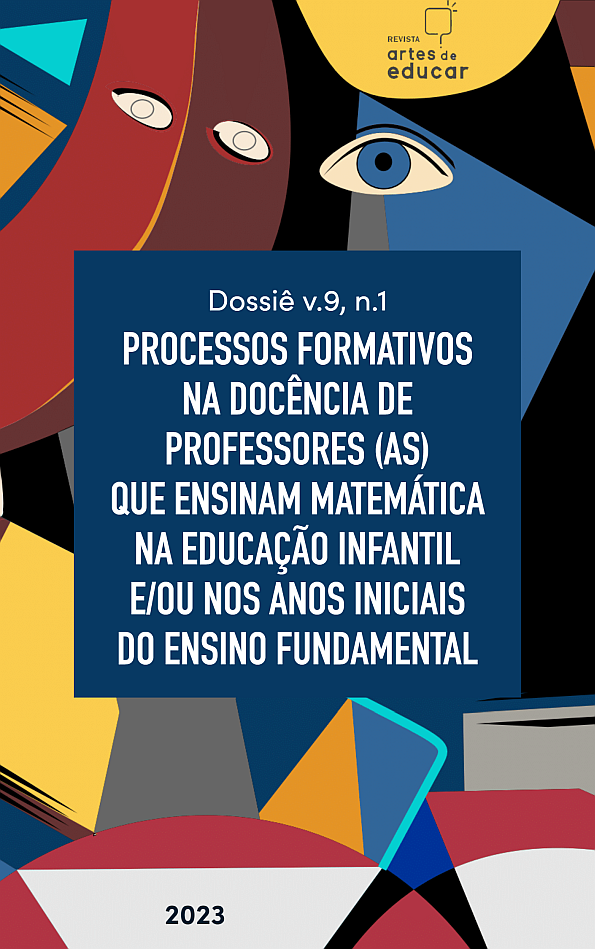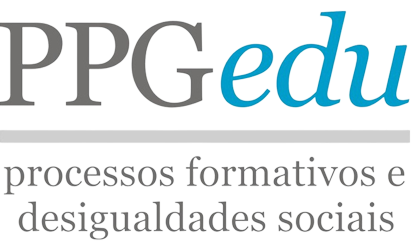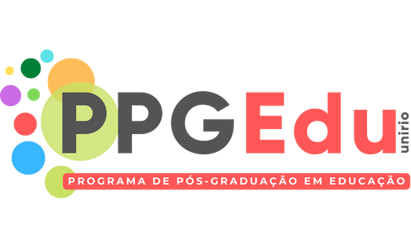GAMIFICAÇÃO COMO INSTRUMENTO PEDAGÓGICO NO ENSINO E NA APRENDIZAGEM DE MATEMÁTICA
DOI:
https://doi.org/10.12957/riae.2023.69765Palavras-chave:
Gamificação, Jogos, Estratégia Pedagógica.Resumo
Este estudo de caráter bibliográfico, apresentado na forma de relato de experiência, aborda o uso de gamificação e jogos como instrumento pedagógico para colaborar no ensino de Matemática nos anos finais do Ensino Fundamental. O objetivo foi analisar a utilização de tecnologias, sobretudo digitais, como recurso pedagógico, tendo em vista colaborar com o desenvolvimento do raciocínio dos estudantes, contribuindo para construção do conhecimento de forma criativa. Para tanto, as atividades foram elaboradas nos sites Wordwall e Kahoot para turmas dos anos finais do Ensino Fundamental. Entende-se que essas atividades poderão ser utilizadas de forma disciplinar, interdisciplinar e transdisciplinar, bem como serem realizadas de forma individual ou em grupo, com autonomia, protagonismo, envolvimento, criatividade e planejamento. Os resultados indicam que as atividades com gamificação e jogos, quando criteriosamente planejadas, favorecem o estreitamento do mundo real com o mundo virtual e podem ser uma ferramenta alternativa no processo de desenvolvimento do aluno para colaborar com o professor no ensino de Matemática como estratégia pedagógica.
Referências
ALBUQUERQUE, L. F.; DIAS, N. dos S. A gamificação no processo de aprendizagem: análise da percepção dos alunos do curso de administração. Revista Brasileira de Educação e Inovação da Univel (REBEIS), Edição Especial, p. 9-10, jul./set. 2021.
ALVES, Lynn Rosalina Gama; MINHO, Marcelle Rose da Silva; DINIZ, Marcelo Vera Cruz. Gamificação: Diálogos com a Educação. In: MARIA FADEL, Luciane et al. (Org.). Gamificação na Educação.1. ed. São Paulo: Pimenta Cultural. Cap. 3, p. 74-97. v. Único. 2014.
ARRUDA, E. P. Ciberprofessor: novas tecnologias, ensino e trabalho docente. Belo Horizonte: Autêntica/FHU-FUMEC, 2004.
BEHRENS, M. A. Metodologia de projetos: aprender e ensinar para a produção do conhecimento numa visão complexa. In: TORRES, P. L. (org.). Complexidade: redes e conexões na produção do conhecimento. Curitiba: SENAR, 2014, p.104.
DAROS, T. A sala de aula inovadora: estratégias pedagógicas para fomentar o aprendizado ativo. Porto Alegre: Penso, 2018.
FADEL, L. M.; ULBRICHT, V. R.; BATISTA, C. R.; VANZIN, T (org.). Gamificação na educação. São Paulo: Pimenta Cultural, 2014.
FARDO, M. L. A gamificação como método: estudo de elementos dos games aplicados em processos de ensino e aprendizagem. Dissertação [Mestrado em Educação]. Caxias do Sul RS: UCS, 2013, p. 65. Disponível em: < https://repositorio.ucs.br/xmlui/bitstream/handle/11338/457/Dissertacao%20Marcelo%20Luis%20Fardo.pdf?sequence=1 > Acesso em: 06 jan. 2023.
FIALHO, N. N. Os Jogos Pedagógicos Como Ferramentas de Ensino. Anais do VIII Congresso Nacional de Educação - Educere. [recurso eletrônico] Curitiba: Champagnat, 2008.Disponível em: < http://www.pucpr.br/eventos/educere/educere2008/anais/pdf/293_
pdf >. Acesso em: 06 jan. 2023.
HUIZINGA, J. Homo Ludens: o jogo como elemento da cultura. Tradução: João Paulo Monteiro. São Paulo: Perspectiva, 2014.
KOPFLER, E.; OSTERWEIL, S.; SALEN, K. Moving learning games forward: obstacles, oportunities & openness. The Education Arcade Massachusetts Institute of Technology, p.01 2019. Disponível em: < https://education.mit.edu/wp-content/uploads/2018/10/MovingLearningGamesForward_EdArcade.pdf > Acesso em: 03 jun. 2022.
MEIRA, L.; BLIKSTEIN, P. Ludicidade, jogos digitais e gamificação na aprendizagem. Porto Alegre: Penso, 2020.
MOSER, A.; MARTINS, J. L. A transformação digital: o futuro no presente da educação. Palmas, TO: EDUFT, 2021.
PRENSKY, M. Aprendizagem baseada em jogos digitais. São Paulo: Senac-SP, 2012.
SCHLEMMER, E.; BACKES, L.; LA ROCCA, F. L’Espace de coexistencehybride, multimodal, pervasif et ubiquitaire: lequotidien de l’éducation à lacitoyenneté. Educação Unisinos, São Leopoldo RS, v. 20, n. 3, p. 299-308, set./dez. 2016. ISSN: 2177-6210. DOI: https://doi.org/10.4013/edu.2016.203.11585 . Disponível em: < http://revistas.unisinos.br/index.php/educacao/article/view/edu.2016.203.03/5601 >. Acesso em: 03 jun. 2022.
WERBACH, K.; HUNTER, D. For The Win: How Game ThinkingCanRevolutionizeYour Business. Digital Press, Filadélfia, 2012.
WIKIPEDIA. Terraformação. Disponível em: < https://pt.wikipedia.org/wiki/Terraforma%C3%A7%C3%A3o >. Acesso em: 03 jun. 2022.
Publicado
Como Citar
Edição
Seção
Licença
Copyright (c) 2023 Revista Interinstitucional Artes de Educar

Este trabalho está licenciado sob uma licença Creative Commons Attribution-NonCommercial 4.0 International License.
Os autores mantêm os direitos autorais dos seus trabalhos, têm permissão para publicar e distribuir seu trabalho online (ex.: em repositórios institucionais ou na sua página pessoal) a qualquer ponto antes ou durante o processo editorial, já que isso pode gerar alterações produtivas, bem como aumentar o impacto e a citação do trabalho publicado.
A aceitação do texto implica na autorização e exclusividade da Revista Interinstitucional Artes de Educar acerca do direito de primeira publicação, os trabalhos publicados estão simultaneamente licenciados com uma licença Creative Commons Atribuição-Não Comercial 4.0 Internacional 























